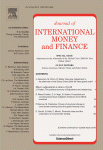Vives, X. (2015) “A framework for banking structural reform, VoxEU Organisation, 17 Μαρτίου. The 2007–08 crisis revealed regulatory failures that had allowed the shadow banking system and systemic risk to grow unchecked. This column evaluates recent proposals to reform the banking industry. Although appropriate pricing of risk should make activity restrictions redundant, there may nevertheless be complementarities between these two approaches. Ring-fencing may make banking groups more easily resolvable …Read More
Does a surprise tightening of monetary policy expand shadow banking?
Nelson, Β., Pinter, G. & Theodoridis, K. (2015) “Does a surprise tightening of monetary policy expand shadow banking?“, VoxEU Organisation, 16 Μαρτίου. There has been an extensive debate over whether central banks should raise interest rates to ‘lean against’ the build-up of leverage in the financial system. This column reports on empirical evidence showing that, in contrast to the conventional view, surprise monetary contractions have tended to increase shadow …Read More
‘Neoliberal’ variants have dominated Europe’s history but they have paved the way for a new conception of human progress
Glendinning, S. (2015) ‘Neoliberal’ variants have dominated Europe’s history but they have paved the way for a new conception of human progress, LSE EUROPP, 16 Μαρτίου. The term ‘neoliberalism’ is frequently used in contemporary political discussions, but while polemically effective, conceptually it lacks rigour. Simon Glendinning writes on the relationship between the concept and classical liberalism. He argues that by defining neoliberalism in terms of this relationship it becomes …Read More
Is there an easy way out? Private marketable debt and its implications for a Eurozone break-up
Amiel, D. & Paul-Adrien, H. (2015) “Is there an easy way out? Private marketable debt and its implications for a Eurozone break-up“, VoxEU Organisation, 15 Μαρτίου. As the Eurozone crisis lingers on, euro exit is now being debated in ‘core’ as well as ‘periphery’ countries. This column examines the potential costs of euro exit, using France as an example. The authors estimate that 30% of private marketable debt would …Read More
For a few dollars more: Reserves and growth in times of crises
Matthieu Bussière, Μ., Cheng, G., Chinn, D. M. & Lisack, N. (2015) “For a few dollars more: Reserves and growth in times of crises“, Journal of International Money and Finance, Vol. 52, Απρίλιος 2015, σελ. 127–145. Highlights Countries with higher reserves saw a smaller growth shortfall in the great recession. Reserve to short-term debt is the most significant reserve adequacy ratio. Reserves’ marginal effect on growth is somewhat reinforced …Read More
Sovereign debt, bailouts and contagion in the Eurozone
Kobielarz, M., Uras, B. & Eijffinger, S. (2015) “Sovereign debt, bailouts and contagion in the Eurozone“, VoxEU Organisation, 12 Μαρτίου. The Eurozone Crisis has been characterised by a sharp rise in sovereign interest rates in peripheral countries. The re-emergence of spreads between peripheral and core Eurozone countries at the start of the Greek crisis came after a decade of homogeneous interest rates in the monetary union. This column investigates …Read More
European Central Bank quantitative easing: the detailed manual
Claeys, G., Leandro, A. & Mandra, A. (2015) “European Central Bank quantitative easing: the detailed manual“, Bruegel Institute, 11 Μαρτίου. The European quantitative easing programme, the Public Sector Purchase Programme (PSPP), started on 9 March 2015 and will last at least until September 2016. Purchases will be composed of sovereign bonds and securities from European institutions and national agencies. The European Central Bank Governing Council imposed limits to ensure …Read More
Will Podemos rescue Spain’s unemployed youths?
Weisbrot, M. (2015) “Will Podemos rescue Spain’s unemployed youths?“, Forbes Magazine, Commentary, 09 Μαρτίου. In just two months since it was created, the leftist party pushing for an end to austerity in debt-troubled Spain has won 8% of the vote in Europe’s parliamentary elections. Earlier this year, the electoral victory of Syriza in Greece marked the first government elected within the troubled eurozone to finally say no to European …Read More
Monetary policy and credit costs
Gertler, M. & Karadi, P. (2015) “Monetary policy and credit costs“, VoxEU Organisation, 10 Μαρτίου. Evidence of the impact of monetary policy on economic activity supports conventional models with nominal rigidities. This column highlights the importance of the ‘credit channel’ of monetary policy. Unanticipated tightening produces a significant drop in real activity. However, monetary policy responses produce large movements in credit costs, which are due to the reaction of …Read More
Europe is being torn apart – but the torture will be slow
Garton Ash, T. (2015) “Europe is being torn apart – but the torture will be slow“, The Guardian, 08 Μαρτίου 2015. This monetary union without a political one will continue to cause suffering and divide the north from the south “If the euro fails, Europe fails”: thus spake Angela Merkel. Unfortunately, the euro is failing, but it is failing slowly. Even if Greece grexits, the eurozone seems unlikely to …Read More





